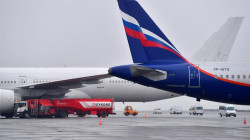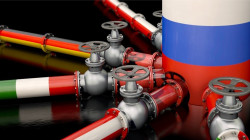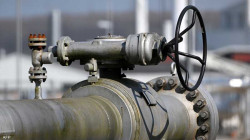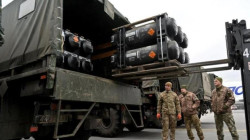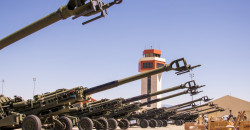Middle East refiners capitalizing on Europe's thirst for non-Russian diesel
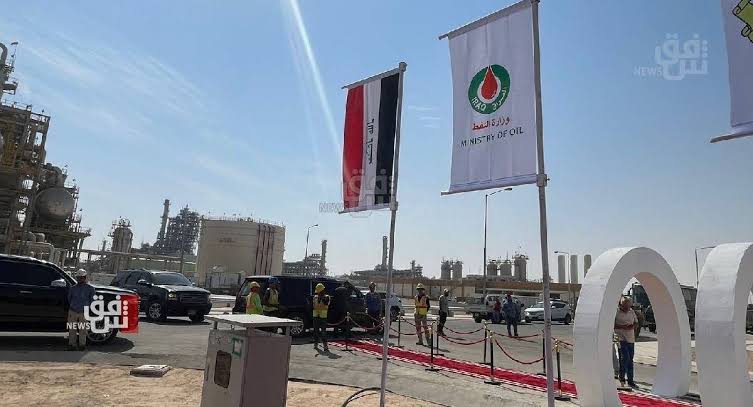
Shafaq News/ The Middle East, flush with new refining capacity, has stepped up its fuel exports to Europe, just as the EU's embargo on Russian oil products is set to go into effect Feb. 5.
Diesel shipments from the Middle East to Europe have seen volumes hit a weekly peak of just below 500,000 b/d in January, according to data from S&P Global Commodity Insights, helping the continent ease a supply crunch expected ahead of the ban on Russian imports and the G7's planned price cap.
The EU had earlier issued a similar embargo while the G7's $60/b price cap on Russian crude oil shipments came into effect Dec. 5.
"This situation is very fast moving," said Hedi Grati, S&P Global's head of Europe/CIS refining research.
Diesel flows to the region from the Middle East hit their third-highest level on record in December at 420,000 b/d, with 60% exported from Saudi Arabia, according to tanker tracker S&P Global Commodities at Sea.
Analysts at S&P Global Commodity Insights now expect diesel exports from the region to Europe to average 890,000 b/d over March-December, compared with 238,000 b/d in the first half of 2022 and 343,000 b/d in the second half of 2022.
Kuwait made its first "winter grade" diesel shipment to Europe in December 2022 -- a 66,000 mt cargo -- as buyers sought alternatives to Russian products, official news agency Kuna reported earlier. The country's new 615,000 b/d Al-Zour refinery was expected to start up the second of three crude distillation units imminently, S&P Global reported Jan. 25.
Iraq's 140,000 b/d Kerbala refinery is scheduled to be at full production in July, and Oman's 230,000 b/d Duqm refinery, a joint venture between state petroleum investment company OQ and Kuwait Petroleum International, could start test runs in the next few months, state officials said.
Saudi Arabia has a new refinery at Jazan that began operations in 2021. When operating at full capacity, the Jazan refinery is expected to be a "diesel machine" with many European traders anticipating an influx of Middle Eastern cargoes in Europe at cheaper prices than those produced by European refineries.
So far there has been no indication that Jazan has begun producing European specification diesel, and no cargo shipments of diesel to Europe have been made, according to shipping fixtures.
"The EU has already been sourcing more diesel from non-Russian sources, especially the US, Saudi Arabia and India, as flows from Russia have fallen," said Rebeka Foley, oil market analyst at S&P Global. "Looking ahead, the Middle East should be well-placed to help plug the diesel supply gap in Europe given its proximity and new refineries coming online."
Awaiting cap
Middle East diesel exports to TotalEnergies came to 49,200 b/d in 2022 while flows to Italy's Eni stood at 27,200 b/d, according to Kpler shipping data.
TotalEnergies terminated all Russian gasoil purchase contracts in 2022, a company spokesperson said, adding that a notable part of its incoming shipments come from its production from the 440,000 b/d Saudi Aramco Total Refining & Petrochemical Co., or Satorp refinery. TotalEnergies owns 37.5% of the Jubail refinery, and Aramco the majority 62.5%.
Austria's OMV and Italy's Eni also have stakes in the UAE's ADNOC Refining, which operates three refineries with a total refining capacity of 922,000 b/d. OMV declined to provide its plans for alternative imports and Eni did not respond to a request for comment.
Saudi Aramco has also extended its reach to Northern Europe, where it completed the acquisition of a minority stake in Poland's 210,000 b/d Gdansk-based refinery under a deal with Poland's largest refiner PKN Orlen. At the beginning of 2022, PKN agreed to sell a 30% stake in Grupa Lotos' 210,000 b/d Gdansk plant to Saudi Aramco.
Market sources said there was still uncertainty over the prices of banned products under the G7's price cap, which is intended to minimize the disruption to the global market while limiting the revenue Moscow can generate from its oil sales.
The EU has proposed a threshold of $100/b for Russian diesel and gasoil and $45/b for other oil products, but negotiations are still ongoing. Any sales above those limits would be subject to sanctions, including the denial of insurance.
"That's the question we are all trying to answer, it's unclear at the moment," a Middle East trader told S&P Global. "Everyone is waiting for the price cap to kick in."
A price cap of $100/b for diesel would equate to roughly $745/mt. Platts, part of S&P Global Commodity Insights, assessed CIF Northwest European diesel cargoes at an average $945.75/mt in January, $200/mt above the anticipated price cap level.
Europe needs to replace some 2 million mt/month of diesel and jet fuel, and India and the Middle East can supply more than half of it, another trader said. Gasoline probably does not make economic sense, however, the trader added.
Most Middle Eastern refiners are unlikely to import Russian crude to process, although they may import Russian products to re-export, according to S&P Global refinery economist Rasool Barouni.
Refineries in the oil producing nations of the Middle East are typically designed to process domestic crude and would see little benefit in paying for the transport of Russian crude. As for refiners in the non-oil producing countries of the region, they may have more flexibility for processing Russian crude, he said.
The EU has proposed a threshold of $100/b for Russian diesel and gasoil and $45/b for other oil products, but negotiations are still ongoing. Any sales above those limits would be subject to sanctions, including the denial of insurance.
"That's the question we are all trying to answer, it's unclear at the moment," a Middle East trader told S&P Global. "Everyone is waiting for the price cap to kick in."
A price cap of $100/b for diesel would equate to roughly $745/mt. Platts, part of S&P Global Commodity Insights, assessed CIF Northwest European diesel cargoes at an average $945.75/mt in January, $200/mt above the anticipated price cap level.
Europe needs to replace some 2 million mt/month of diesel and jet fuel, and India and the Middle East can supply more than half of it, another trader said. Gasoline probably does not make economic sense, however, the trader added.
Source: S&P Global
